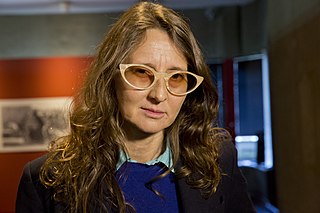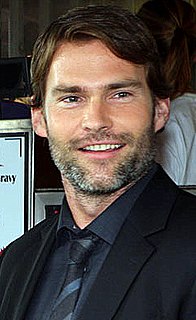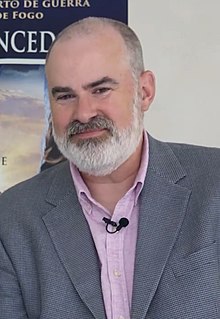A Quote by Paul W. S. Anderson
I can't remember who said, 'No film is completed, just abandoned,' but I think most filmmakers will tell you that they could endlessly fiddle with their films for the next couple of decades, you know, changing things, altering things.
Related Quotes
There will be ups, there will be downs, there will be sideways. I can just tell you I have been hired, I have been fired, I have been lauded, I have been vilified. I've said some of the most brilliant things that just by accident appeared on my tongue, and I've said some of the dumbest things that you could imagine. But each day - even the day that I knew I was going to be fired - I looked forward to because I've always believed that tomorrow was going to be the best day of my life.
If we could turn around and stand back, then we would see the whole complete pattern. And therefore what we have to do in this lifetime is to perfect this pattern, so that it will continue a most beautiful pattern next time and next time and next time and next time because we vowed until samsara is empty! Now, that's going to be a long time, so you'd better get prepared for the long haul, and the best way to do that is to really prepare yourself as much as possible in this lifetime, and not waste your opportunities so that we can genuinely benefit beings, endlessly, endlessly, endlessly.
When you think of things like The Sopranos, The Wire, Damages, they are beating film on a regular basis. Most films are terrible. It's only the 2% that are good. There's things you can do on TV which you can't do on film. There is something about those episodic, serialisations that are grand and operatic.
I don't know if I'm the most religious guy, but I think I'm a spiritual man, and these are the things I think about a lot. In terms of the film, I think 'The Grey' is very much a non-denominational kind of film. I don't think it's something that relies on a particular religious bent to tell the story.
I think if people who are attacking me or against me, if they would just watch one of my films, they would - they may not agree with me politically on all the things I'm saying. But they will know at the end of the film that I love this country and that I have a heart. And they'll have a good laugh throughout the film.
Even before the economic crisis in Greece there was no structure for making films - no proper industry, and the structure didn't help filmmakers at all. So filmmakers had to help each other, and make very, very low-budget films. Now with the crisis, things got a bit worse, but filmmakers are still going to be making films. It didn't change that much.
When filmmakers are kept from making films, there's a lot of different reasons why. Sometimes you work on a film and cast it and do all the work and can be just a month away from shooting, and all of a sudden, the whole thing goes up in smoke. But I do think the advent of a digital revolution is going to provide people with opportunities to make films that they never would have had before. I think you can do some pretty credible stuff now with very, very little money. Which I think is great for young filmmakers.






































